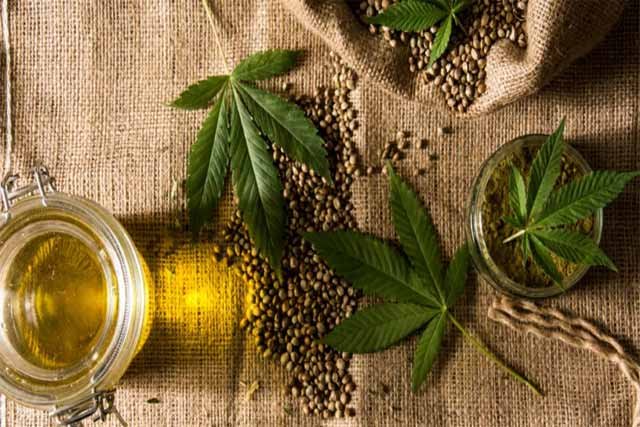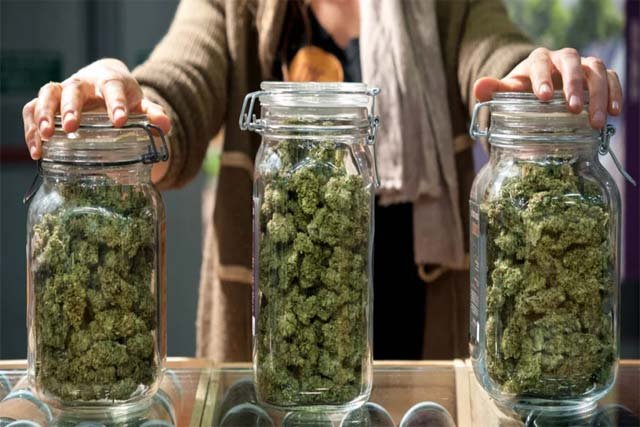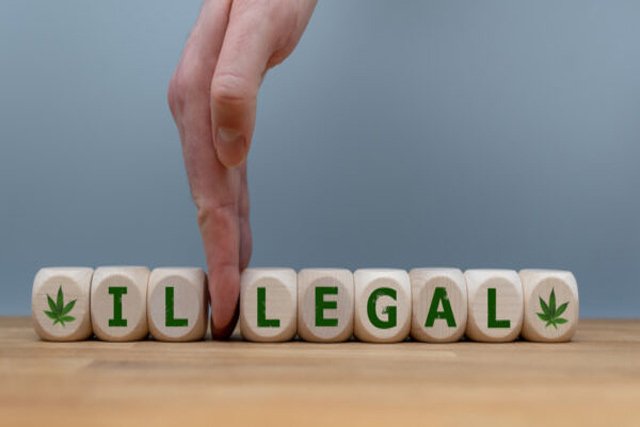If you are reading this, you have probably heard of delta-8-THC (delta-8). Just like marijuana, delta-8 is psychoactive and induces a stoned effect; I presume you’re aware. But if delta-8 is so similar to marijuana, you’re probably wondering why it is legal.
Delta-8 is legal at the federal level in the United States, thanks to the 2018 Agriculture Improvement Act (Farm Bill). The act legalized all components of the hemp plant, setting a cap on delta-9-THC at 0.3%. As of September 2022, 18 states have banned delta-8 products.
It’s great to have you here. In this post, I’ll be looking at US hemp laws in more depth and exploring how the delta-8 market has been able to emerge when marijuana remains banned. I’ll also examine the future legal outlook for delta-8.
Hemp Legalization in the United States
Before we go further, I want to explain what hemp is in the eyes of US lawmakers.
Legally, hemp describes any Cannabis Sativa L. plant with less than 0.3% THC. Until the 2010s, all forms of marijuana were illegal in the US due to the psychoactive nature of THC.
Marijuana contains other non-psychoactive cannabinoids with therapeutic properties and can also be used to make stuff in addition to just THC.
Did you know that American soldiers fighting in World War 2 wore clothing made from hemp?
After decades as a Schedule 1 controlled substance, the benefits of Cannabis Sativa L. plants simply became too big to ignore. Therefore, they decided to loosen restrictions and establish a legal hemp industry in the US.
The legalization of hemp set the foundations for the delta-8 industry that has popped up out of nowhere in the past few years.
The Emergence of Delta-8

Hemp is a complex plant – scientists have only started to realize just how complex in recent decades. The plant contains hundreds of compounds, the most important and controversial of which are cannabinoids.
Delta-8 is one of more than 110 cannabinoids that have been identified in hemp. In contrast to the likes of THC, CBD, and THCV, delta-8 is obscure.
Until a few years ago, even in the cannabis scene, finding anyone who had even heard of delta-8 would have been a struggle due to its tiny quantities.
But that’s all changed now. Hemp was first legalized at the federal level in 2014, but the 2018 Farm Bill brought much-needed clarity to the budding industry. The wording of the law also opened the door for delta-8.
Essentially, the Farm Bill legalized the entire hemp plant and all of its naturally occurring cannabinoids, terpenes, flavonoids, acids, isomers, and salts of isomers. To stop companies from making psychoactive hemp products, lawmakers capped THC levels at a stingy 0.3%.
However, by permitting the entire plant, the law created legal space for products with rich levels of specific cannabinoids. Suddenly, companies began extracting, concentrating, and selling compounds that were once mere afterthoughts as tinctures, e-liquids, edibles, and more.
No cannabinoid has enjoyed such a stunning rise from zero to hero as delta-8. From being virtually unheard of, delta-8 products are now a must-have for weed lovers in states that are yet to legalize recreational marijuana.
Despite its psychoactive properties, delta-8 wasn’t a priority for legislators when drawing up hemp laws. The very low levels of delta-8 in hemp plants explain why.
People didn’t consider that the compound could be used to create products identical to marijuana because delta-8 naturally occurs in small amounts. However, that’s exactly what happened.
How Delta-8 Products are Made
Even though it’s possible and legal to extract delta-8 from hemp, that only explains part of the story. Because delta-8 occurs in such tiny concentrations, it’s not financially practical to extract the compound and sell it like hemp-based CBD products.
Making delta-8 products like CBD products would require substantially more hemp flower. Costs would be sky-high and products unaffordable. So, manufacturers came up with another – and controversial – technique.
The process involves CBD-isolate, hydrochloric acid, toluene, and a laboratory. A clever, cannabis-minded chemist worked out that by immersing CBD isolate in a mixture of hydrochloric acid and toluene, you could create delta-8.
Should Delta-8 be Legal?

This technique enables the manufacturing of delta-8 in large quantities and at a low cost because CBD-isolate extract is much easier and cheaper to make. Some have argued that this is, at best, bending the law, if not breaking it.
Indeed, 18 states have banned delta-8, and more are considering it. So far, the federal government has remained unmoved. However, the Drug Enforcement Administration (DEA) published updated guidance on the Farm Bill and “synthetic cannabinoids” in 2020.
The debate surrounding delta-8’s legality centers on whether the cannabinoid is synthetic or not. Delta-8 products are certainly not natural to the extent that CBD products are, but that doesn’t mean they are synthetic.
The Interim Final Rule (IFR) published by the DEA in 2020 took aim at synthetic cannabinoids: “All synthetically derived tetrahydrocannabinols remain Schedule 1 controlled substances.”
At first, this sent the delta-8 industry into chaos, even though the IFR did not explicitly refer to delta-8. Perhaps the rule didn’t intend for delta-8 at all but targeted synthetic cannabinoids like spice.
Ultimately, delta-8 is still a naturally occurring cannabinoid, and the CBD isolate used to make it has a natural origin. Manufacturers produce delta-8 in laboratory conditions, but they don’t create it from scratch like other synthetic cannabinoids.
However, a cannabinoid that wouldn’t exist without undergoing a chemical process doesn’t fit the description of a natural compound, either. Lawmakers definitely didn’t intend to give the all-clear to making cannabinoids with hydrochloric acid when they legalized hemp.
This leaves delta-8 in legal limbo. Technically, products have a natural origin but reach their final form through a synthetic process.
No legislation directly addresses such a half-and-half situation. For now, the delta-8 industry is making the most of the gray area, and customers cannot get enough.
Buying Delta-8

Providing delta-8 is legal where you live, you can buy and consume products with confidence. I recommend checking any county, city, and town laws where you reside – it’s not just the federal government and states that have the power to restrict substances.
The delta-8 market – and the entire hemp industry – is not regulated by the Food and Drug Administration (FDA). The absence of standards creates quality and safety concerns, with scammers and shady businesses cutting corners or making outright dangerous products.
Buying from a dodgy vendor could leave you short-changed with a low-quality product or worse. The vaping lung illness outbreak that started in late 2019 and led to more than 2,700 hospitalizations highlighted the risks of buying fake e-liquids.
Given the delta-8 manufacturing process, purchasing from a genuine brand is even more vital. You can just imagine how many wannabe chemists are out there looking to make a quick buck despite not having a clue what they are doing.
Top brands selling genuine delta-8 are keen to prove it by getting third-party-approved products. These companies send their products off to independent laboratories that check products for potency and safety.
Brands then make these results available, confirming their delta-8 products contain the stated amount of delta-8 and are free from heavy metals, bacteria, pesticides, and other nasties. In a sense, these brands are regulating themselves since the government isn’t.
The dodgy companies selling fake or low-quality cannot meet these standards and avoid third-party tests at all costs.
If a brand isn’t being transparent with you, that’s a tell-tale sign they are hiding something. With so many good brands out there, it’s not worth risking your health for a few bucks.
The Future of Delta-8 in the United States
Delta-8 may be thriving, but it faces an uncertain future in the US. The 18 states that have banned it prove that delta-8 has divided opinion.
These states are as follows: Alaska, Arizona, Arkansas, Colorado, Connecticut, Delaware, Kentucky, Idaho, Iowa, Michigan, Mississippi, Montana, New York, North Dakota, Rhode Island, Utah, Vermont, and Washington.
Other states, such as Texas, are weighing up a ban. Meanwhile, reports of product seizures in South Carolina suggest a hostile environment, even though the state has no laws against delta-8.
While delta-8 is still legal at the federal level, the reality is that tens of millions of Americans are already unable to access it. The DEA could finish off the delta-8 industry overnight by explicitly making delta-8 a Schedule 1 substance and capping it like THC.
Much will depend on whether delta-8 products are eventually deemed synthetic. This may be tricky since delta-8 is naturally occurring – it could be difficult to prove if a company is manufacturing it in a lab.
But delta-8 wouldn’t be the first substance to fall victim to questionable legislation. Other drugs have previously been labeled synthetic or “designer drugs,” even when they are not. It’s one thing to complain about unfair laws but quite another to get anything done about it.
That said, the delta-8 industry is making its presence felt where possible. Texas has already attempted to ban delta-8 but was unsuccessful, thanks to strong pushback from advocates. We only have to look at the DEA’s failed plan to ban kratom a few years ago to see what people’s power can do.
Delta-8 will continue to exist in a gray area for the foreseeable future. Demand is strong, and several brands are manufacturing high-quality products to satisfy cannabis fans looking for a legal form of weed.
But the jury is out on how long this situation can go on and whether delta-8 will receive legal protection or be banned altogether. Hopefully, for the many who enjoy delta-8 products, the industry will have a bright future.




